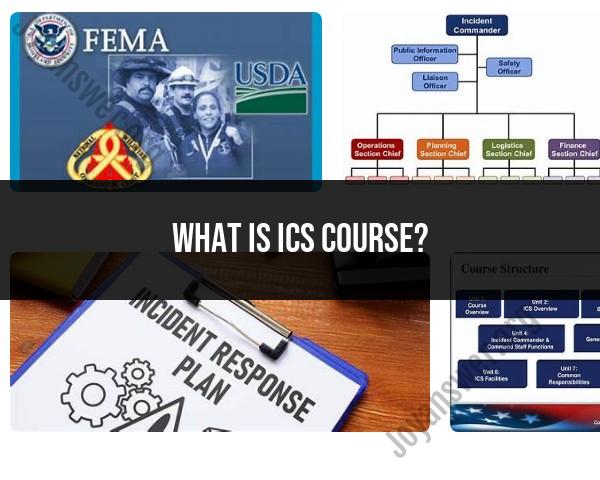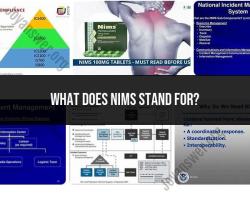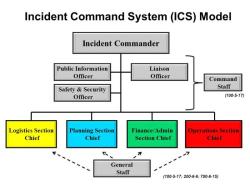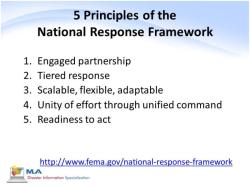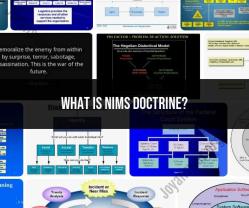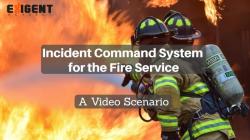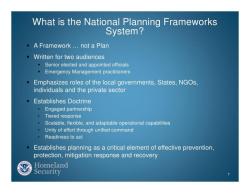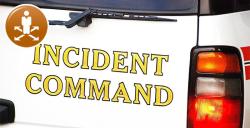What is ICS course?
The Incident Command System (ICS) course is a training program that provides individuals with the knowledge and skills to effectively implement and operate within the ICS framework. The course is designed to prepare responders, emergency personnel, and management-level personnel to understand and use the principles of ICS in managing incidents of various sizes and complexities. The ICS course is essential for individuals involved in emergency response, incident management, and coordination efforts. Here's an overview of the typical content covered in an ICS course:
ICS Course Content:
Introduction to ICS:
- An overview of the Incident Command System, its history, and the rationale behind its development.
Key Components of ICS:
- Detailed explanation of the key components of ICS, including the Incident Command Post (ICP), General Staff, Incident Commander, and functional units.
Basic ICS Organization:
- Understanding the basic organizational structure of ICS, including the modular organization, chain of command, and unity of command.
Unified Command:
- Explanation of the Unified Command structure, which involves multiple agencies working together under a single, unified structure.
ICS Positions and Responsibilities:
- Identification of key ICS positions and their respective responsibilities, including Incident Commander, Operations Section Chief, Planning Section Chief, Logistics Section Chief, and Finance/Administration Section Chief.
Common Terminology:
- Emphasis on the use of common terminology to ensure clear and consistent communication among responders.
Resource Management:
- Guidance on resource management within the ICS framework, including the identification, ordering, mobilization, and demobilization of resources.
Integrated Communications:
- Understanding the importance of integrated and interoperable communications within the ICS structure.
Incident Action Planning:
- Overview of the Incident Action Planning process, including the development and use of Incident Action Plans (IAPs).
Transfer of Command:
- Procedures for the transfer of command when multiple agencies are involved in incident response.
Demobilization:
- Guidelines for the orderly and efficient demobilization of resources once the incident is under control.
Case Studies and Scenarios:
- Practical case studies and scenarios to apply ICS principles to real-life situations and incidents.
Simulated Exercises:
- Participation in simulated exercises to practice the application of ICS concepts in a controlled environment.
Review and Evaluation:
- Assessment of participants' understanding through quizzes, evaluations, and discussions.
ICS Course Levels:
- ICS courses are often structured into different levels, with each level designed for specific roles within the incident management structure. Common levels include ICS 100, ICS 200, ICS 300, and ICS 400. The higher-level courses are typically designed for individuals in leadership and management roles.
Target Audience:
- The ICS course is suitable for a wide range of professionals, including emergency responders, law enforcement, fire service personnel, emergency medical services, public health officials, and individuals in management or leadership roles in incident response.
Certification:
- Depending on the jurisdiction and the specific course, participants may receive a certificate of completion upon successfully finishing the course. Some ICS courses are also required for certain emergency response certifications.
Overall, the ICS course is a crucial component of emergency management and response training, providing a standardized approach to incident management that enhances coordination, communication, and effectiveness during emergencies and disasters.
What does an ICS (Incident Command System) course involve?
An ICS (Incident Command System) course provides training in the standardized framework for managing incidents of any size or complexity. The content and structure of the course can vary depending on the specific level of training and intended audience, but generally, you can expect:
Core Concepts and Principles:
- Introduction to NIMS (National Incident Management System): Understanding the overall framework and how ICS fits within it.
- Fundamentals of ICS: Exploring the core principles of ICS, such as unity of effort, scalability, and common terminology.
- Organizational Structure: Learning about the different ICS positions and their roles within the command structure, including Incident Commander, General Staff, Branch Chiefs, and Operations Section Chiefs.
- Planning and Resource Management: Gaining skills in developing incident action plans, managing resources effectively, and coordinating activities across different functions.
- Communication and Documentation: Understanding the importance of clear communication protocols and proper documentation during incident response.
Practical Applications and Exercises:
- Scenario-based exercises: Applying ICS principles to simulated incident scenarios to gain practical experience in making decisions and managing resources.
- Group discussions and activities: Engaging in collaborative exercises to learn from each other and develop teamwork skills.
- Case studies: Analyzing real-world incidents to understand how ICS was applied and identify lessons learned.
Course Levels and Options:
- ICS 100: This foundational course provides an overview of ICS principles and is often a prerequisite for taking further courses.
- ICS 200: This intermediate course delves deeper into ICS organizational structures, planning processes, and resource management.
- Advanced ICS courses: Specialized courses focus on specific functions within ICS, such as command staff roles, planning, logistics, or specific incident types like hazardous materials or wildland fires.
Additional Considerations:
- Certification: Some ICS courses offer certificates upon successful completion, which can be beneficial for employment in emergency response fields.
- Target audience: Different courses may be geared towards specific professions or roles within emergency response, such as first responders, emergency managers, or incident commanders.
Overall, an ICS course equips you with the knowledge and skills to effectively participate in and contribute to coordinated incident response efforts, regardless of your specific role or background.
If you're interested in taking an ICS course, I recommend researching options based on your desired level of training and career goals. Many organizations offer ICS courses, including your local emergency management agency, professional associations, and private training providers.
Feel free to ask any further questions you may have about ICS courses or specific aspects of the training!
